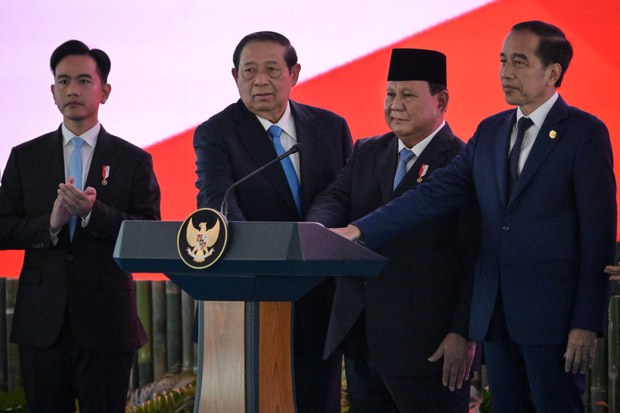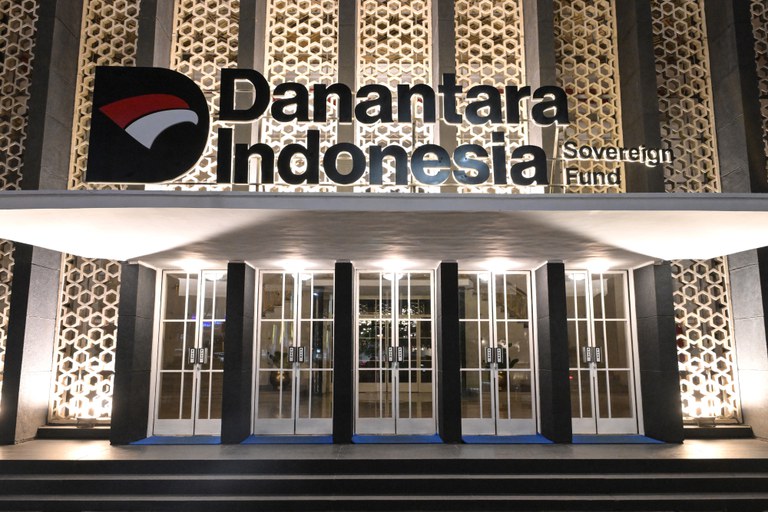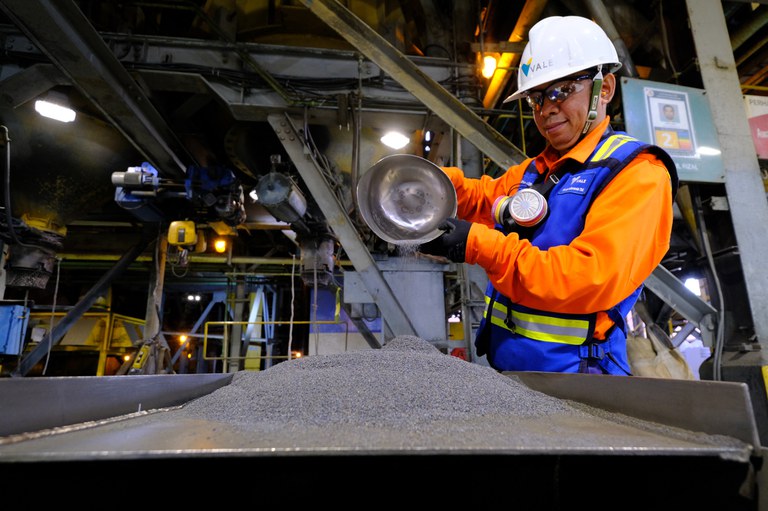EXPLAINED: What is Danantara, Indonesia’s new state investment body?
2025.02.25
Jakarta
 (From left) Indonesian Vice President Gibran Rakabuming Raka, former President Susilo Bambang Yudhoyono, President Prabowo Subianto and ex-President Joko Widodo attend the launch of Danantara, the news state investment agency, in Jakarta on Feb. 24, 2025.
(From left) Indonesian Vice President Gibran Rakabuming Raka, former President Susilo Bambang Yudhoyono, President Prabowo Subianto and ex-President Joko Widodo attend the launch of Danantara, the news state investment agency, in Jakarta on Feb. 24, 2025.
Daya Anagata Nusantara (Danantara), a new state investment management body launched by Indonesian President Prabowo Subianto, aims to boost the nation’s economy.
The announcement on Monday fulfilled a key campaign promise by Prabowo, who took office in October.
But what exactly is Danantara, and how does it fit into Indonesia’s economic ambitions?
Here’s what you need to know:
What is Danantara?
Danantara is designed to consolidate funds from Indonesia’s state-owned enterprises (SOEs) and channel them into strategic projects, such as renewable energy, industrial development, and food production.
Prabowo has described it as an “economic catalyst” with the ambitious goal of accelerating Indonesia’s growth rate and ensuring long-term prosperity.
The name Danantara is derived from three Indonesian words: Daya (energy or strength), Anagata (future), and Nusantara (Indonesia). They reflect the body’s mission to become a driving force for the nation’s economic future.

With an estimated initial asset base of U.S. $900 billion, Danantara ranks among the world’s largest state investment bodies. It surpasses Malaysia’s Khazanah ($37 billion) and Singapore’s Temasek ($596 billion) and is the seventh-largest globally.
What will Danantara do?
Danantara’s primary role is to optimize the management of Indonesia’s state-owned assets and invest in high-impact projects.
According to Prabowo, the body will focus on areas related to sustainable energy, food security and industrial downstreaming that involves processing raw materials into higher-value products.
“We no longer want to sell our natural resources cheaply or serve as raw material suppliers for other nations,” Prabowo said during the launch.
“High-impact projects will generate significant value for our nation, create quality jobs, and ensure long-term prosperity for the Indonesian people.”
Why was Danantara created?
The idea for Danantara emerged during Prabowo’s presidential campaign, where he pledged to create a superholding company to manage Indonesia’s state-owned enterprises more effectively.
Inspired by Singapore’s Temasek Holdings, the plan was initially slated for launch in November 2024 but was delayed.
Danantara’s creation was formalized following the third revision of Indonesia’s SOE Law, passed by the House of Representatives on Feb. 4.
While it was initially envisioned as a replacement for the Ministry of State-Owned Enterprises, the ministry now retains some oversight powers, including a 1% “special share” that grants the government veto power over strategic decisions.
Who is leading Danantara?
Rosan Roeslani, Indonesia’s minister of Investment and head of the Investment Coordinating Board, has been appointed Danantara’s chief executive officer.
Rosan, who led Prabowo’s 2024 presidential campaign team, is joined by Pandu Sjahrir, a businessman and nephew of National Economic Council Chairman Luhut Pandjaitan, as chief investment officer. Pandu was a member of Prabowo’s campaign team as well.
The Dantantara team also includes Deputy Minister of SOEs Dony Oskario, who will serve as chief operating officer.
The presidential office has indicated that a former president may be appointed to Danantara’s leadership, but no details have been provided.
How is Danantara funded?
Danantara’s initial capital comes from seven major state-owned enterprises, including Bank Mandiri, Bank Rakyat Indonesia, Telkom Indonesia, and energy giant Pertamina. Together, these companies have contributed around $20 billion in initial funds from their revenues.
Additional SOEs are expected to join Danantara in the future, which will further expand the body’s asset base. The first phase of investment will focus on nickel and bauxite processing, food production, and green energy projects.

How does Danantara compare with Indonesia’s existing investment fund?
Indonesia already has a sovereign wealth fund, the Indonesia Investment Authority (INA), established in 2021 under former President Joko Widodo.
However, Danantara is broader in scope, combining investment management, asset development, and sovereign wealth fund functions such as managing and investing state assets. INA will eventually be absorbed into Danantara.
What are the concerns?
Despite its ambitious goals, Danantara has faced skepticism from analysts and transparency advocates.
Some worry that its leadership, dominated by political appointees rather than independent professionals, could undermine its efficacy.
“Danantara looks more like a political institution for elites rather than a professionally managed fund,” said Budi Frensidy, a capital market analyst at the University of Indonesia.
Others have raised concerns about oversight.
Under its legal framework, Danantara’s audits will be conducted by a public accountant chosen by shareholders and approved by the SOE minister.
Only if the House of Representatives requests it would there be an intervention by the Supreme Audit Agency, which is the government body responsible for accountability of state finances.
The law does not explicitly grant oversight authority to Indonesia’s Corruption Eradication Commission (KPK) either.
Danantara’s CEO Roslan has sought to address these concerns, stating that the body is not immune from the law.
“The KPK can certainly step in, especially if there are improper or criminal acts,” he told reporters on Monday.
Prabowo has also stressed the importance of transparency, declaring that Danantara “must be auditable at any time by anyone because this, once again, belongs to our children and grandchildren, [and] to the future generations of Indonesia.”







